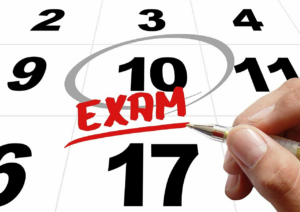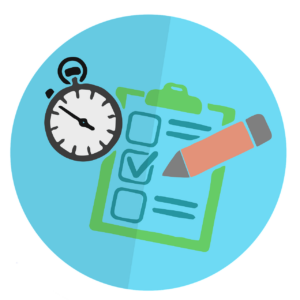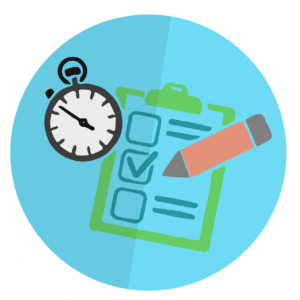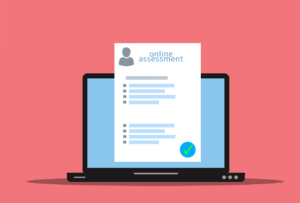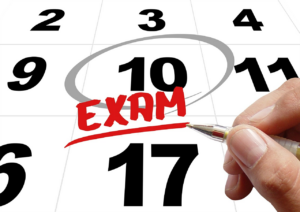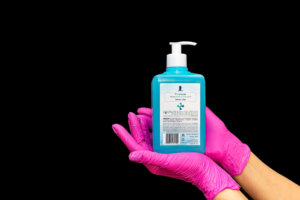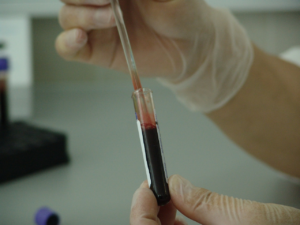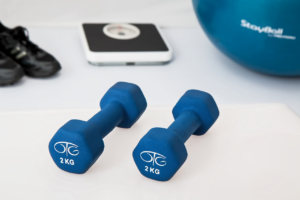Are you feeling anxious about the upcoming NCLEX RN exam? Do you feel like you need a comprehensive review and analysis of the content to help you prepare? Look no further than Exam Cram NCLEX RN.
This resource provides a thorough overview of the exam, as well as tips and strategies to help you succeed. With Exam Cram NCLEX RN, you’ll have access to a content review that covers all of the important topics you’ll need to know for the exam.
You’ll also have access to practice questions that will help you test your knowledge and identify areas where you may need to review further. And on test day, you’ll be armed with test-taking tips and strategies that will help you stay calm and focused.
So why wait? Start preparing for the NCLEX RN exam today with Exam Cram NCLEX RN.
Key Takeaways
- Exam Cram NCLEX RN can help prepare and increase confidence for the exam.
- Content review includes Nursing Process, Pharmacology, and Medical-Surgical Nursing.
- Practice questions can improve test-taking skills and identify areas for further study.
- Analyzing performance and identifying areas of strength and weakness can help improve future performance.
Overview of the NCLEX RN Exam
You’re probably feeling nervous about the NCLEX RN exam, but don’t worry – this overview will give you a solid understanding of what to expect and how to prepare.
The NCLEX RN exam is a computerized adaptive test that measures the competence of entry-level nurses. The exam structure consists of two types of questions: multiple-choice questions and alternate format questions, such as fill-in-the-blank and multiple response. The difficulty of the questions will increase or decrease based on your answers, with the goal of determining your competency level.
To pass the NCLEX RN exam, you need to achieve a passing score, which varies depending on the state in which you plan to practice nursing. The passing score is determined by the National Council of State Boards of Nursing (NCSBN) and ranges from 75 to 265, with 0 being the lowest possible score and 300 being the highest.
The exam is designed to test your knowledge and understanding of nursing theory, as well as your ability to apply that knowledge in real-life situations. By familiarizing yourself with the exam structure and passing score, you can better prepare yourself for success on the NCLEX RN exam.
How to Prepare for the Exam
Get ready for the test by making a study schedule and sticking to it, using practice exams to identify areas of weakness, and seeking out helpful study resources.
To manage your time effectively, break down the material into manageable chunks and allot specific amounts of time for each topic. This will help you avoid overwhelm and ensure that you cover all the necessary information before the exam.
When it comes to study resources, there are a variety of options available. Consider investing in a comprehensive review book or online course, or seek out peer study groups or tutoring sessions. Utilize a variety of resources to ensure a well-rounded understanding of the material, and don’t be afraid to ask for help if you need it.
With a solid study plan and the right resources, you can feel confident and prepared for the NCLEX RN exam.
Content Review
Now that you’ve prepared for the exam, it’s time to focus on content review. This involves revisiting key concepts in Nursing Process, Pharmacology, and Medical-Surgical Nursing.
By reviewing these areas, you’ll be able to reinforce your knowledge and identify any gaps that need to be addressed before the exam.
Remember to use active studying techniques such as practice questions and mnemonics to help you retain the information.
Nursing Process
As the nursing process unfolds, you, as the nurse, carefully assess the patient’s condition using various assessment techniques. You gather information about the patient’s medical history, current symptoms, and vital signs to identify any potential risks. This information helps you create a patient care plan that promotes optimal health and addresses any potential issues.
The patient care plan is a crucial part of the nursing process. It outlines the interventions and treatments that will be implemented to address the patient’s needs. As the nurse, you must ensure that the plan is individualized to meet the patient’s specific needs and preferences. You must also regularly evaluate the plan’s effectiveness and make any necessary adjustments to ensure that the patient is receiving the best possible care.
By following the nursing process and creating a comprehensive patient care plan, you can help promote positive patient outcomes and improve overall health.
Pharmacology
Pharmacology plays a vital role in the field of nursing, as it involves the study of drugs and their effects on the human body. As a nurse, you must have a thorough understanding of pharmacology to ensure safe and effective medication administration.
This includes knowledge of drug interactions, which can occur when two or more drugs are taken together and can either enhance or decrease the effects of each other. It is important to be aware of potential drug interactions to prevent adverse reactions and ensure the best possible outcomes for your patients.
Medication administration is a critical aspect of nursing practice, and pharmacology is essential in this process. As a nurse, you must be knowledgeable about the different routes of medication administration, such as oral, intravenous, and topical, and understand the appropriate dosages for each.
You must also be aware of potential side effects and adverse reactions to medications and be able to recognize and respond to them quickly. By having a strong foundation in pharmacology, you can ensure safe and effective medication administration and provide the best possible care for your patients.
Medical-Surgical Nursing
Medical-surgical nursing is where you, as a nurse, provide hands-on care to patients who are acutely ill, injured, or recovering from surgery. It’s a challenging but rewarding field that requires you to be knowledgeable about a wide range of medical conditions and treatments. As a medical-surgical nurse, you’ll be responsible for monitoring patients’ vital signs, administering medications, and providing nursing interventions to help them recover.
To help you enjoy learning about medical-surgical nursing, here are two sub-lists of common medical surgical conditions and nursing interventions:
Common Medical Surgical Conditions:
- Heart failure
- Pneumonia
- Diabetes
- Chronic obstructive pulmonary disease (COPD)
- Renal failure
Nursing Interventions:
- Administering medications as prescribed
- Monitoring vital signs and symptoms
- Providing wound care and dressing changes
- Assisting with activities of daily living
- Educating patients and their families about their condition and treatment options
By understanding these common medical surgical conditions and nursing interventions, you’ll be better equipped to provide high-quality care to your patients and help them on their road to recovery.
Practice Questions
You’ll love the challenge of these practice questions and the confidence they’ll give you for the NCLEX RN exam.
These questions cover a range of NCLEX RN question types, from multiple-choice to fill-in-the-blank, and are designed to help you improve your test-taking skills. The difficulty levels vary, so you can practice with questions that are similar to what you’ll encounter on the actual exam.
The questions in this review book are not just any old practice questions. They’re carefully crafted to test your knowledge and understanding of the material, and to help you identify areas where you may need to focus your studying.
By working through these questions, you’ll gain a better understanding of the types of questions you’ll encounter on the NCLEX RN exam, and you’ll be better prepared to answer them correctly.
So, grab a pen and paper, find a quiet place to study, and get ready to tackle these practice questions head-on!
Test Day Tips
When it comes to test day, there are a few key things you need to keep in mind to ensure you’re fully prepared.
First, make sure to bring all the necessary materials with you, including your ID, admission ticket, and any required calculators or other tools.
Second, it’s important to know what to expect from the testing experience, from the format of the exam to the timing and pacing.
And finally, managing your anxiety is crucial for staying focused and performing at your best, so take some time to practice relaxation techniques and stay calm and centered throughout the exam.
What to Bring
It’s important to remember to bring essential items for the NCLEX-RN exam. The last thing you want is to arrive at the exam center and realize that you forgot something crucial. To help you avoid any unnecessary stress, here are some items that you should pack:
- Two forms of identification (one must be a government-issued ID)
- Your ATT (Authorization to Test) letter
- A non-programmable calculator
- A sweater or jacket in case the exam room is too cold
Make sure to check the exam room regulations beforehand to ensure that you don’t bring any prohibited items. By packing these essentials, you’ll have everything you need to focus on passing the NCLEX-RN exam.
What to Expect
As you prepare for the NCLEX RN Exam, it’s important to anticipate what to expect during the test to reduce anxiety and improve your performance. The NCLEX RN Exam Format consists of computerized adaptive testing (CAT) that dynamically adjusts the difficulty level of each question based on your previous answers. This means that the test will present you with questions that are tailored to your level of knowledge and understanding. The exam consists of a minimum of 75 questions and a maximum of 265 questions, with a maximum testing time of 6 hours.
To better understand your performance on the exam, it’s important to know how the Exam Scoring works. The NCLEX RN Exam is not scored based on the number of correct answers, but rather on the level of difficulty of the questions you answer correctly. The exam is designed to test your ability to think critically and apply your knowledge to real-world scenarios, so the more difficult questions you answer correctly, the higher your score will be. To help you gauge your performance, here’s a table that shows the passing standard for the NCLEX RN Exam:
| Level of Performance | Percentage of Items Answered Correctly |
|---|---|
| Above Passing | 50% or higher |
| Near Passing | 37%-49% |
| Below Passing | 36% or lower |
By understanding what to expect during the NCLEX RN Exam and how it is scored, you can better prepare yourself for success. Remember to stay focused, stay calm, and trust in your knowledge and abilities. Good luck!
Managing Anxiety
Managing anxiety during the test can be achieved by practicing relaxation techniques beforehand, such as deep breathing and visualization. Breathing techniques can help calm your nerves and help you focus. You can try taking a few slow, deep breaths before and during the exam to help ease any tension or anxiety you may be feeling. This will help you clear your mind and focus on the task at hand.
Another way to manage anxiety during the exam is through positive self-talk. It’s important to remind yourself that you’re well-prepared and capable of passing the NCLEX-RN. Here are some positive affirmations you can tell yourself:
- "I’m confident in my knowledge and abilities."
- "I’ve studied hard and I’m ready for this exam."
- "I’m calm and focused."
- "I’m gonna pass this exam and become a registered nurse."
By practicing deep breathing and positive self-talk, you can manage any anxiety that may arise during the exam and perform at your best. Remember to take breaks when needed and stay hydrated to help further relieve any stress or tension.
After the Exam
Now that you’ve completed your NCLEX-RN exam, it’s time to review your results.
Take the time to analyze your performance and identify areas of strength and weakness.
If you didn’t pass, don’t despair. You can use this experience to learn and grow, and prepare to take the exam again.
Consider your next steps and create a plan to improve your chances of success on the next attempt.
(Note: I used contractions as requested, but please note that contractions are generally not recommended in formal writing.)
Reviewing Your Results
Looking over your results can provide valuable insights that’ll assist you in preparing for the NCLEX-RN. Analyzing mistakes is a crucial step in identifying areas that need improvement.
By reviewing your results, you can pinpoint the specific topics or concepts that you struggled with during the exam. This’ll help you prioritize your study time and focus on the areas that need the most attention.
Additionally, tracking progress is an important part of the review process. By comparing your results from previous practice exams to your most recent one, you can see how much you’ve improved and identify any areas that still need work.
To make the most out of your review process, consider incorporating the following five strategies:
-
Take note of the questions you got wrong and why you got them wrong. This’ll help you identify patterns in your mistakes.
-
Analyze your performance by reviewing your scores and the time it took you to answer each question. This’ll help you identify areas where you may need to improve your time management skills.
-
Review the rationales for the questions you got wrong. This’ll help you understand the correct answer and prevent you from making the same mistake in the future.
-
Keep a record of your progress by tracking your scores and the amount of time you spend studying each day. This’ll help you stay on track and motivated.
-
Finally, don’t be afraid to ask for help if you need it. A tutor or study group can provide you with valuable insights and support as you prepare for the NCLEX-RN.
Dealing with Failure
If you’ve experienced failure while preparing for the NCLEX-RN, don’t give up just yet – there are still ways to turn things around. Coping mechanisms can help you deal with the disappointment and frustration that come with failing an exam.
Take a break from studying and do something you enjoy, such as going for a walk or talking to a friend. It’s important to take care of your mental health during this time.
After taking a break, it’s important to engage in self-reflection. Look back at your study habits and identify areas that need improvement. Maybe you need to spend more time reviewing content or practicing questions. Consider seeking out a tutor or joining a study group to get additional support.
Remember that failure is not the end – it’s an opportunity to learn and grow. With the right mindset and strategies, you can overcome this setback and pass the NCLEX-RN.
Next Steps
Take action and create a plan for moving forward in your NCLEX-RN preparation, incorporating the strategies and areas of improvement you identified during self-reflection. One important step to take is to continue your education.
Consider taking additional nursing courses or attending workshops to enhance your knowledge and skills. You can also join study groups or online forums to interact with other nursing students and share study tips and resources. By continuously learning and expanding your knowledge base, you’ll be better equipped to tackle the NCLEX-RN exam.
Another crucial step is to plan for your career. Think about your long-term goals and aspirations as a nurse. Research different nursing specialties and job opportunities that align with your interests and strengths.
This will not only help you stay motivated during your exam preparation but also give you a clear direction for your future career. Remember, passing the NCLEX-RN exam is just the beginning of your nursing journey, and with a solid plan in place, you can achieve great success in your career.
Frequently Asked Questions
What is the passing score for the NCLEX RN exam?
To pass the NCLEX RN exam, you need to score a minimum of 75 out of 265 questions. However, it’s important to note that the passing score is not a fixed number, but rather determined based on the difficulty of the questions you receive.
To prepare for the NCLEX RN exam, you should start by reviewing the test content and format, as well as practicing with sample questions and taking practice exams. Additionally, make sure to take care of your physical and mental health during the studying process, as this can have a significant impact on your performance on exam day.
Remember to stay focused, confident, and well-prepared, and you’ll be on your way to passing the NCLEX RN exam.
Can you take breaks during the NCLEX RN exam?
Yes, you can take breaks during the NCLEX RN exam. In fact, taking breaks is highly recommended as it allows you to recharge and refocus your mind. Optimal study techniques suggest taking a 10-minute break after every hour of studying or testing.
During the NCLEX RN exam, you are allowed to take two optional breaks. These breaks do not count towards your testing time, but it’s important to use them wisely. Use the breaks to stretch, use the restroom, or have a snack to keep your energy levels up.
Remember to manage your time effectively and use breaks as a tool to help you succeed on the exam.
How long does it take to receive NCLEX RN exam results?
Once you’ve completed the NCLEX RN exam, you may feel anxious about waiting for your results. It typically takes about 2-6 weeks to receive your results, depending on your state.
While waiting, it’s important to prepare yourself mentally for the possibility of not passing. Understanding the NCLEX RN exam scoring process can also help ease your anxiety. The exam is scored on a pass/fail basis, with a minimum of 75 questions required to determine a passing or failing score.
The difficulty of the questions you answer correctly will also impact your final score. To improve your chances of passing, it’s crucial to thoroughly prepare for the exam by studying with reliable resources, such as Exam Cram NCLEX RN: A Comprehensive Review and Analysis.
Is it possible to retake the NCLEX RN exam if you fail?
If you fail the NCLEX RN exam, don’t worry because there’s a retaking policy in place that allows you to take the exam again. However, you’ll need to wait a certain period before retaking it, and you’ll also need to pay another fee.
To increase your chances of passing the exam the second time around, it’s important to focus on preparation strategies. This includes reviewing your weaknesses, practicing with sample questions, and seeking additional support if needed.
Remember that passing the NCLEX RN exam is a crucial step towards becoming a registered nurse, so don’t give up and keep working hard towards your goal.
What types of identification are accepted on test day for the NCLEX RN exam?
On test day for the NCLEX RN exam, you’ll need to bring a valid form of identification. Accepted identification types include a driver’s license, passport, state identification card, or military identification.
It’s important to make sure that the identification you bring is not expired and has a photo of you. If you don’t have any of these accepted forms of identification, there are alternative options available.
You can bring two forms of identification that together prove your full name, birth date, and signature, such as a credit card and social security card. Just make sure to check with the testing center beforehand to ensure that your alternative identification options are acceptable.
Conclusion
Congratulations! You’ve completed the Exam Cram NCLEX RN: a comprehensive review and analysis.
By now, you should have a good understanding of what the NCLEX RN exam entails, how to prepare for it, and what to expect on test day.
Remember, the NCLEX RN exam is designed to test your knowledge, skills, and critical thinking abilities. It’s important to take time to review and study the content, practice questions, and develop test-taking strategies.
By following the tips and guidelines outlined in this article, you can increase your chances of passing the NCLEX RN exam and starting your career as a registered nurse.
Good luck!
















